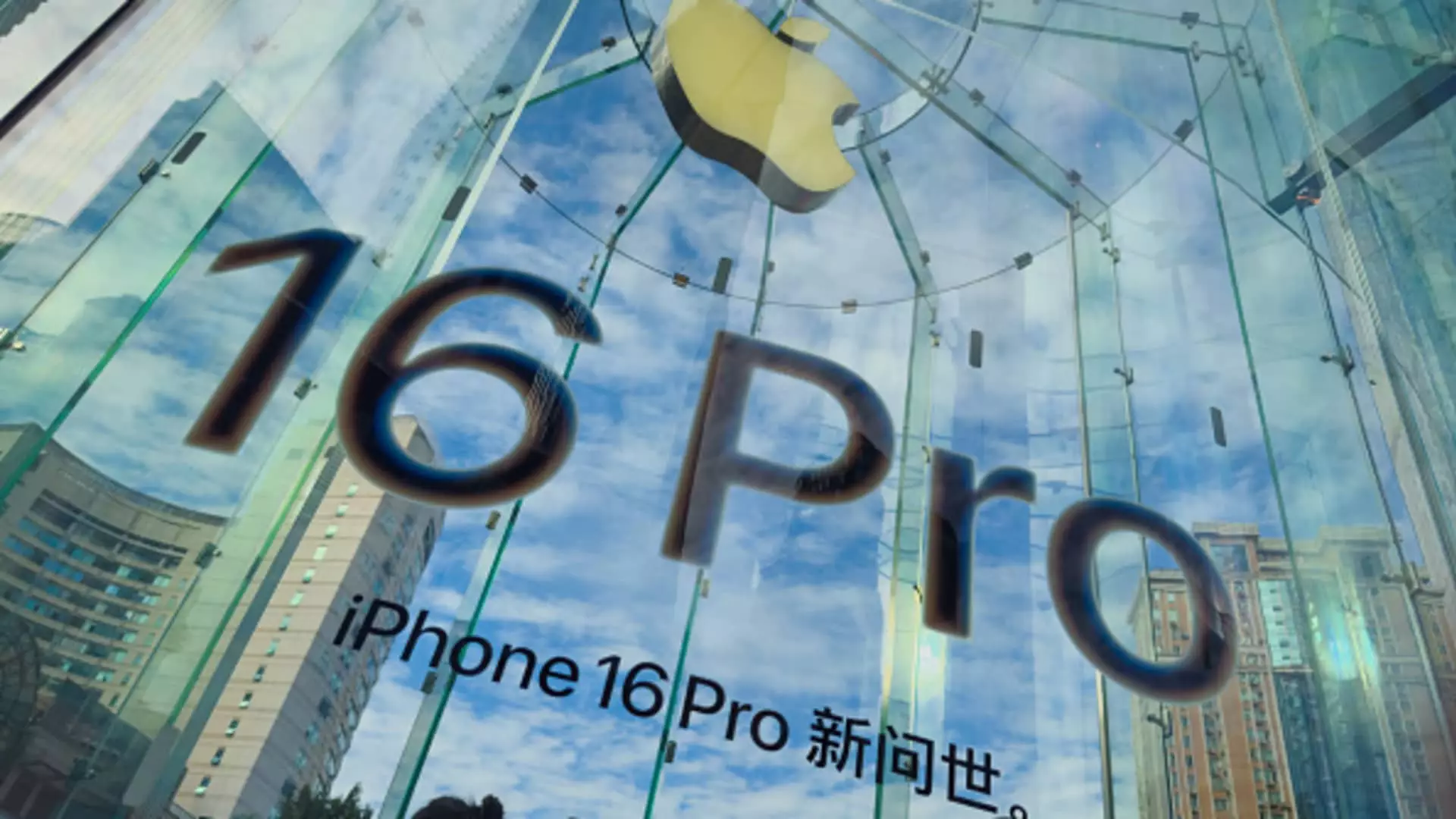In the competitive landscape of the Chinese smartphone market, Apple is taking decisive steps to retain its foothold as it prepares to usher in the Chinese New Year. With discounts on its flagship models, including significant price reductions on the iPhone 16 Pro and iPhone 16 Pro Max, Apple is responding strategically to the increasing pressure from domestic rivals such as Huawei. By slashing prices—500 yuan (approximately $68.50) off the premium models and 400 yuan off their standard counterparts—Apple aims to invigorate sales and attract a customer base that is becoming increasingly price-sensitive as competition intensifies.
Traditionally, Apple has reserved discounts for third-party retailers rather than deploying them directly through its own retail channels. This approach has changed in recent months, signaling a more aggressive marketing strategy by the tech giant. In the face of formidable competition, this shift towards seasonal promotions illustrates a recognition of the shifting tides within the market.
The latest figures reveal a concerning trend for Apple: a 6% decline in smartphone shipments within mainland China during the third quarter of 2024. Canalys reports that Apple’s market share has decreased from 16% to 14% year-over-year, underscoring the challenges the company faces as it attempts to navigate the complexities of an evolving marketplace. Huawei, in contrast, has experienced a resurgence, with a remarkable 24% year-on-year increase in shipments. Their market share has moved from 13% to an impressive 16%, a clear indicator that Apple’s once-unassailable position is now under siege.
The revitalization of Huawei can be attributed largely to its strategic innovations and the launch of cutting-edge products. Following U.S. sanctions that previously hampered Huawei’s operations, the company has responded resiliently by introducing new devices that feature advanced technology, including a unique trifold phone. This innovation not only showcases Huawei’s engineering capabilities but also serves as a demonstration of its commitment to reclaiming the top spot in the smartphone industry.
The growing rivalry in the smartphone sector requires Apple to rethink its marketing strategies. The willingness to offer promotions during festive seasons such as the Chinese New Year illustrates an understanding that consumer behavior is shifting towards discount-seeking rather than brand loyalty alone. Furthermore, this adaptation may be a precursor to more significant changes in Apple’s approach to pricing and promotion in other markets.
In a sector defined by rapid technological advancement and shifting consumer preferences, the ability to remain agile is paramount. Apple’s recent decisions suggest an acknowledgment of these truths, reminding stakeholders that the pathways to success are not static but rather require continual reassessment and responsiveness to market demands.
As Apple navigates this critical juncture, its strategic discounts represent more than just a seasonal gesture; they are indicative of a larger battle for market supremacy in a rapidly changing environment. With competitors like Huawei promising relentless innovation, Apple must leverage its brand strengths, adapt its strategies, and harness upcoming trends to regain momentum in one of its most vital markets. If the tech giant can successfully balance price competitiveness with its premium product positioning, it may yet find a way to thrive amid the rising tide of domestic competition.

